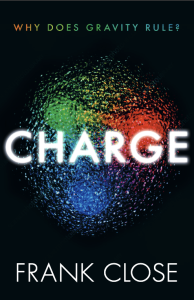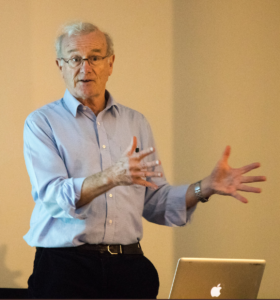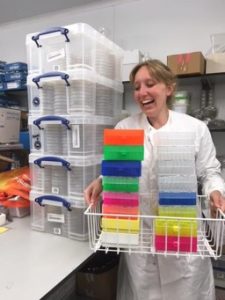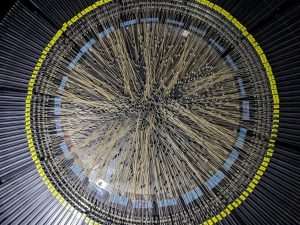Tuesday 16th July 2024 from 19:00 for 19:30
Abingdon United Football Club (Northcourt Rd, OX14 1PL, Abingdon)

There is enormous variation within human populations, including many obvious traits such as height, or hair colour, but also extending to susceptibility to disease. With new technology, computational power, and very large human cohorts the opportunity to make major advances in understanding common human diseases emerges.
Cardiometabolic diseases include the major killers of people in advanced societies, including coronary artery disease, diabetes, and fatty liver disease. These diseases are frequently found to co-occur in the same people, a phenomenon termed multimorbidity (two or more long-term conditions). The co-occurrence of multiple diseases in people raises practical difficulties, in working out how to treat them, who is looking after the different diseases, and how to tackle the common cause. This implies that there is a common cause, and that we can find it.
Using very large human cohorts it is possible to look in an entirely agnostic manner across hundreds of thousands of people to see what the underlying genetic factors for cardiometabolic multimorbidity are. Using this approach we have identified a set of genes which increase the risk of these diseases. We discovered that the circadian clock was a risk for cardiometabolic disease. The circadian clock is our internal body clock which sets our daily rhythms for activities like sleep or eating. This led us to examine what other evidence is there for circadian disruption, and disease. We looked at shiftwork, people with preferences for morning, or evening activity (chronotype), and the effect of shifts to daylight savings time. Interestingly, all these diverse challenges to the way we organise our day also increase the risk of cardiometabolic disease; strengthening the case.
We extended our analysis to test the possible effects of drug-targeting the circadian clock again using our large human cohorts. This was an approach called drug-target Mendelian randomisation. We use natural genetic variation to mimic the likely actions of a drug. In this way we can conduct virtual trials, to estimate the likely effects of a drug on disease, and we can also look at possible side effects. This analysis revealed a major benefit for longevity, cardiometabolic diseases, and also a cardiac rhythm disorder.
Taken together, we use an unbiased approach in very large groups of people, to find new genetic risk factors for common diseases. This identified the circadian clockwork as a potential target. Analysis of natural experiments of circadian disruption further support the importance for disease risk. Finally, we can perform virtual drug trials to identify promising candidates for drug discovery.
Speaker: Professor David Ray
Professor David Ray is a professor of Endocrinology and Head of the Oxford Centre for Diabetes, Endocrinology and Metabolism at the University of Oxford.
He now leads a new NIHR programme Grants for Applied Research developing new interventions for NHS shiftworkers, based on his circadian and sleep discoveries.
Ray has served the MRC clinical fellowship panel as deputy chair, the Society for Endocrinology as Programme Secretary, and later General Secretary as examples of service to the UK clinical research community.
 Gravity rules the world we see because the electric charges in atoms cancel out. If they hadn’t, no planets, stars, or galaxies would have formed. But why is matter neutral?
Gravity rules the world we see because the electric charges in atoms cancel out. If they hadn’t, no planets, stars, or galaxies would have formed. But why is matter neutral? Frank Close OBE FRS is Professor Emeritus of Theoretical Physics at Oxford University and Fellow of Exeter College, Oxford.
Frank Close OBE FRS is Professor Emeritus of Theoretical Physics at Oxford University and Fellow of Exeter College, Oxford.




